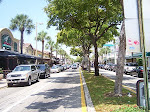
Athens, capital of modern Greece, original site for the Olympics, birthplace of democracy. Athens is one of the oldest still inhabited cities in the world. The original habitation occurred well before 1500 BC and was an important settlement for the Mycenaean culture. After surviving the Doric invasion around 1200 BC, it lost much of the power it previously held and the population dwindled. In the 9th Century Athens again rose as a powerful city whose influence was felt over a vast region. Social unrest in the 7th Century led to reforms, first by Draco with strict regulations(hence draconian), then to a new set of laws by Solon around 600 BC.
This revised system divided society into classes based on wealth and ability for military service.
 A first was the right to vote for all members, though only the higher classes could hold office. While it was a good idea, class tensions remained. After Solon was overthrown by his cousin, Athens entered its Golden Period. The city
A first was the right to vote for all members, though only the higher classes could hold office. While it was a good idea, class tensions remained. After Solon was overthrown by his cousin, Athens entered its Golden Period. The city became more powerful with the establishment of a navy, and tribute began to pour into the city.
became more powerful with the establishment of a navy, and tribute began to pour into the city.It was during this period that many of the monuments in ancient Athens were built. The Acropolis was crowned by the Parthenon, a temple to the Goddess Athena. It replaced an older structure that had been destroyed during one of the many wars that Athens was involved. remember homosexuality was preferred in
 the Greek army, lovers fought harder to save the other. It is considered one of the last examples of the Doric style and featured a towering statue of Athena. If you want to see the temple in its original condition, travel to Nashville, TN where it is recreated. Yes, I know this seems strange, but it is true.
the Greek army, lovers fought harder to save the other. It is considered one of the last examples of the Doric style and featured a towering statue of Athena. If you want to see the temple in its original condition, travel to Nashville, TN where it is recreated. Yes, I know this seems strange, but it is true.The view from the Acropolis is breathtaking. The metropolis of Athens spreads

 out all directions. And just a s a note, all Greek cities had an acropolis, Athen's is just the most famous. The view includes many ancient ruins from both Greek and Roman times.
out all directions. And just a s a note, all Greek cities had an acropolis, Athen's is just the most famous. The view includes many ancient ruins from both Greek and Roman times.Also in view is the original stadium from the modern Olympics. Built for the games in 1896, it still stands, the first great stadium of modern times. Also in Athens, but more towards the outskirts are the facilities for the centennial Olympics in 1996. The games are a recreation of competition in ancient times between the city states. Though
 unlike their modern version, the original athletes competed in the nude. Now that would make me a definite sports lover.
unlike their modern version, the original athletes competed in the nude. Now that would make me a definite sports lover.At the base of the Acropolis is the Platka. It is a neighborhood that is vibrant and alive with
 many side walk cafes, shops and bars. Just be careful to stay on the main streets and be alert to pick-pockets. One of the shady cafe patios is a wonderful way to pass an afternoon eating Greek specialties and your favorite adult beverage, but watch out for ouzo, it sneaks up on you.
many side walk cafes, shops and bars. Just be careful to stay on the main streets and be alert to pick-pockets. One of the shady cafe patios is a wonderful way to pass an afternoon eating Greek specialties and your favorite adult beverage, but watch out for ouzo, it sneaks up on you.If the spectacle of ancient athletes competing in the nude(I think I have seen that video), stuffed grape leaves and ouzo, and ancient monuments sounds like a great vacation, call Damron Vacations and have one of the agents plan your Hellenic Escapade.





No comments:
Post a Comment